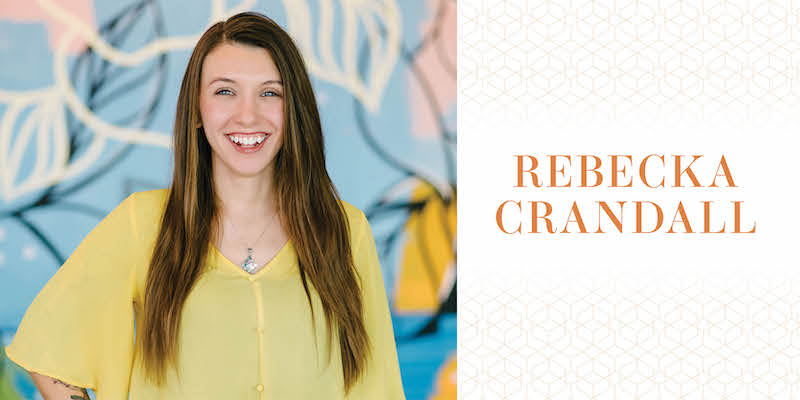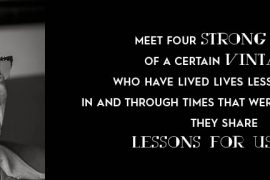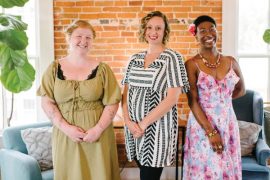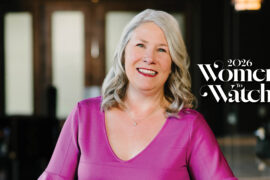By Hannah Wente | Photography by Hillary Schave
Mental health and addiction are two topics many people struggle to talk about, especially if they’re struggling with either one.
As the coordinator of the Hope Project at ARC Community Services, Rebecka Crandall aims to change the narrative by sharing what works, drawing from her personal and professional experiences.
“We need to address it more as a medical, mental health emergency versus criminal behavior,” she says. “The current systems we have are punishing people who are struggling with an addiction, who, in reality, are struggling with trauma.”
Growing up, Crandall’s mother struggled with mental health and alcohol addiction. Luckily, her family talked openly about mental health as a result. Crandall herself was diagnosed with depression at age 9, but medications and talk therapy didn’t seem to help. By age 15, she was labeled by the Western medical world as “treatment resistant.”
In the ensuing years, Crandall continued to have major depressive episodes, suicidal thoughts and self-harming habits. She started researching psychedelic medicine and traveled to Peru (where some psychedelics are legal and commonly used as therapy) to take part in a guided retreat where she participated in alternative healing activities. Since then, she has successfully worked on living with her mental illness.
“My depression is something I can carry with me now,” she says.
Her own experiences have informed how the 28-year-old builds the Hope Project at ARC Community Services. Her focus is not on “curing” people, but instead humanizing drug treatment and mental health services outside of typical approaches.
The Hope Project is a harm reduction program for women dealing with opioid, heroin and stimulant addiction. It’s a holistic, client-centered approach with no discharge dates and no punishment for continuing to use a substance. Crandall says the abstinence model of recovery doesn’t always work for those struggling with addiction, so the program allows clients to focus on what they think will foster their own health, without the requirements, shaming or expectations present in typical addiction programs.
“This is everything I think a treatment program should be,” Crandall says. “We’re focused on wellness and finding traditional healing services.”
In 2022, she hopes to offer Hope Project participants free, trauma-based yoga through a partnership with Madison-based YAFA: Yoga Accessible for All. Her many groundbreaking offerings, built alongside women in recovery, are making waves in the field.
Crandall is also working on a project called Healing Circles that will offer talks and workshops to the public to increase grief and death awareness in the community. As a certified grief support specialist, she hopes to help participants cope with death, the loss of a relationship, major life changes and our own mortality.
Because of all of her work, Crandall’s nominator, Jessica Riphenburg, describes her as a superhero.
“She has this ability to see beyond her client’s addiction and into their pure essence, potential and unique gifts,” Riphenburg says. “Her system of inquiry and witnessing each woman as an individual allows her to help them see and reconnect with that valuable, loved and empowered woman inside themself.”




